- Home
- Peter Cawdron
What We Left Behind Page 2
What We Left Behind Read online
Page 2
We’ve all seen zombies, of course, but since we joined the commune it’s only been through a chain-link fence. Occasionally, a couple of the guards will bring one in on poles. They’ll lasso Zee with loops of rope tied to the end of ten-foot wooden poles to keep him at bay. It takes two or three guards to control a runner, but using the poles they can keep him subdued. The crazy thing is why they do it. They bring them to school and shoot them in front of the kids. And here I was thinking school was supposed to be a return to some kind of normalcy. Apparently, head shots are supposed to desensitize us. Most of the girls puke. I did. I still do.
“My dad has shot them,” Steve replies. “My real dad.”
His real dad is one of the undead. This is the first time any of us have heard Steve talk about his past. Normally, he shrugs when asked about how he ended up so far south and says its no big deal. Seeing your family eaten by zombies is kind of a big deal. Being hunted by your own family when they reanimate is kinda even bigger.
“We all had guns,” he says. “Even my younger sister, Missy. She had a .22 handgun. You’ve got to be lucky with a .22.”
Nobody says anything. We’re hanging on Steve’s every word, knowing Missy wasn’t lucky enough with her .22.
“I had a 9mm Beretta.”
“Cool,” David says. Jane slaps his leg softly, wanting him to be quiet. We all want Steve to talk. Talking is good. Talking is cathartic, as Ms. J says in class, meaning the process itself is healing, although I’m not sure that’s our motivation. We want to hear all the gruesome details, regardless. I’m intensely curious. My dad and I have been here since the commune began. We had it better than most. I want to hear about what it’s like out there on the run from Zee.
“First time I got close to one of them was in one of the camps.”
Them. Everyone has a different term for zombies. I call them Zee because that’s the term my mother used before she turned, speaking about the whole horde as though it was just one individual. Ms. J says that’s synecdoche—a figure of speech putting a part for the whole—but that makes my head spin. Grammar has no place in the zombie apocalypse, although Ms. J would disagree. She says we have to preserve knowledge for the future.
Steve uses “them” and “they” a lot, which I think personifies Zee a little too much. It’s as though he can’t let go of the fact they were once human. If Steve’s choice of labeling them speaks of his past, then what does Zee say about mine? That I too haven’t let go of the past? We all left someone behind, and that’s not easy to accept.
I’ve heard Jane refer to zombies as monsters and ghouls. No prizes for guessing she’s scared of the dark.
David keeps things impersonal with the classic term “zombie.” Sometimes he uses Zee, in homage to me. I guess he thinks it sounds cool, but most of the time he’s quite detached about the apocalypse. I think this speaks of his acceptance of all that happened as though the loss of civilization is somehow okay or was to be expected. I simply cannot think of our lives now as normal. We lost normal a long time ago. David’s dad slips into calling them targets and contacts, which is a military thing, I guess. My dad refers to them as creatures, which is perhaps the creepiest notion of all. It’s as though he sees them on par with us.
“During the early years,” Steve continues, “We were part of the civvies camped with the National Guard. The soldiers kept us pretty isolated. We never saw much of them.”
Them—zombies. Not them—National Guard.
I can relate to what Steve is describing. Early on in the war, it looked like we were winning. There was a time when Zee was almost eradicated. There were so many people with guns in the US. It was open season on zombies. There were no holds barred. For a while, capping Zee was a national sport.
After the initial outbreak, humanity kicked ass, but Zee won the war of attrition. That’s the thing about zombies. You only need one to spoil the party.
For the best part of two years, we thought life was returning to normal. I spent my twelfth birthday boating on a beautiful lake just outside of Kansas City, eating fresh strawberries and sunbathing on the polished wooden bow. There was talk of the government re-forming, not that that meant much to me, and then the second wave came. They say one of the soldiers at the South American choke point became infected, and from there the outbreak began anew. Dad showed me photographs of the front lines in Guatemala. What was left of the US army tried to keep the undead bottled up in South America. They had several lines of defense spanning hundreds of miles in depth. The trenches in Nicaragua looked like they were straight out of World War I, but before too long, the few remaining US forces were fighting a war on both sides. Each loss we suffered only added to the army of the undead. There was only ever going to be one winner—Zee.
“A runner got loose in the middle of the night,” Steve says and my heart beats a little faster. “The National Guard turned their guns on the refugees. A stampeding crowd is hardly any different from a horde of zombies, so they opened fire, only that caused their ranks to swell.”
Their—zombies.
A shiver runs down my spine.
Zombies animate quickest in response to a quick death. Watch a slow lingering death, and the living have a few hours, maybe a day before the corpse turns, but fall off scaffolding and the transformation can be complete within a minute. Get bitten real bad and you’ve got an hour, tops.
“So stupid,” I mutter, not wanting to distract Steve but unable to let that response pass.
“Yeah, like I say,” Steve continues. “Zombie movies. I think they made the outbreak worse. Everyone was so damn scared they’d shoot at shadows, and so the poor sap running from them suddenly finds himself joining the ranks of the undead.”
“Go on,” Jane says softly, leaning forward on the rock. Darkness has fallen. Stars shine down on Earth as they have for billions of years, bathing us in their soft light.
“Head shot,” David says, reminding Steve to keep the story on course.
“Yeah, head shots,” Steve replies. His voice sounds distant. He’s caught between two worlds, reliving the moment all those years ago while trying to be here with us. “I woke up to see tiny holes tearing through our tent. I went to get up when my dad slapped me across the chest, forcing me back into my sleeping bag. Dozens of holes appeared in the nylon. Swish, swish, swish. I could hear gunfire, but it sounded as though it was a long way off. Whoosh. There was a soft whistle, no, not a whistle, a whisper as each bullet tore through our tent.”
I’m leaning so far forward I’m in danger of slipping off the rock. It’s only six or seven feet to the brush below, but I can’t help myself. I have to hear every word. The further Steve goes into his dark past, the softer his voice becomes. We’re all leaning in, not wanting to miss any detail.
“I could hear them.”
Them—Zee.
“They were growling. I could smell them. We hadn’t seen any of them in months, and now they were right on top of us.”
I know what he means about the smell. One of the first things that happens when someone turns is they eliminate. They poo, they pee, they puke. They stink.
“I wanted to run, but my dad’s hand kept me pinned on my back. ‘Shhh,’ he whispered as another round whizzed by just inches from my head. My mother was counting. ‘One, two, three’—whoosh. ‘One, two, three, four, five’—whoosh. Dad whispered to my sister and me, saying, ‘On one, you run, but you run for no more than five yards and then you drop. Got it?’ I nodded. Thinking about it now, I don’t know that he could see me nodding in the darkness, but I’m sure my eyes were as big as saucers . . . One.”
Steve pauses. I hold my breath. I feel as though I am lying beside him on that fateful night. I desperately want him and his family to make it, even though I know they don’t. I hope it wasn’t there in the camp that they turned. It sounds silly, as we all know they joined the undead and hunted him, but I want them to survive this night. At that point, they’re human to me, not monsters. That’s the hardest thing about the zombie apocalypse—depersonalizing a zombie isn’t as easy as it seems, especially if they’re someone you love.
In the soft light, I look deep into his eyes, but Steve doesn’t see me. He’s looking past me, staring back through time, reliving that moment.
“I barely made it out of the tent when my dad yelled, ‘Drop!’ I didn’t want to, but my foot got caught, tangled in the loose flap of the tent, and I went down anyway. Whoosh. ‘Go!’ my mother yelled, and we were up again and running. Dad was in front. I wasn’t counting. My heart was beating too fast. He’d drop and I’d drop behind him.”
David says, “Automated sentry sweeping the area, huh? You must have been on the flank.”
“Shhh,” Jane says, hitting him on the shoulder.
“I guess,” Steve says. “Dad led us between the tents. I kept tripping on guide ropes in the dark. They weren’t smart enough to duck, so the sentry would zero in on them. Didn’t kill them, but the bullets slowed them, breaking arms, ribs. They were so close I could hear their bones cracking as bullets thumped into them.
“Fires started throughout the camp, lighting up the night. Nylon doesn’t burn that well, but everything else inside sure does. People were screaming. It was only when they stopped screaming you knew they’d turned.
“Dad took us sideways. Most of the survivors were trying to get away from them so they ran toward the soldiers and the soldiers mowed them down. My dad was smart. He led us to one side, out into the shadows.”
Steve is proud of his dad; that’s clear from the way he’s speaking. His dad may have fallen to Zee, but right then, he saved his family, and that is something to be proud of, I think. Most people are ashamed of anyone that’s turned. Maybe this is why Steve is so reluctant to use the word “zombie.” He still lov
es his dad.
“I could see the trees. I thought we’d be safe there, but they were waiting.”
I swallow the lump in my throat.
“Waiting?” Jane asks.
“They’re not dumb. That’s another thing that annoys me about the movies. They’re stupid in the movies, wandering around yelling, ‘brains, Brains, BRAINS!’”
No one spoke.
“Dad pointed at them from behind a fence. Mom was still counting, resetting her count every time a bullet whizzed by overhead. I’m not sure how long we waited there. It was probably less than a minute, but with the screaming and crying and moaning behind us getting closer every second, it felt like forever.
“I couldn’t see anything. I crawled up next to dad and he pointed at the dark shadows. He slipped his bug-out pack off his shoulder and pushed a pistol into my hand, whispering, ‘Head shot.’
“My hands were shaking, but I knew what to do. I pulled back on the slide and felt a round load in the darkness. Mom whispered, ‘One,’ and we ran out across the grass toward the trees, and that’s when they came at us.
“Most of them were waiting in the tree line. They’d only sent a few runners into the camp to flush out the game. The soldiers had panicked at the first scream, reacting as though it was a horde descending on them, but it wasn’t. The soldiers never saw the real threat in the dark of the forest.”
Jane asks, “They coordinated their attack? How is that possible?”
Steve shrugs.
“I grabbed my sister’s hand and ran through the long grass after dad. I didn’t want to fall too far behind him, but my sister couldn’t keep up. It was only then I realized Mom was gone. She wasn’t behind us anymore—she wasn’t counting.”
Tears come to my eyes as Steve continues, lost in the moment.
“I dragged Missy behind me, but I lost sight of dad, and that’s when they swarmed.”
He pauses again, and I want to hit him, but he isn’t stopping on purpose. It’s difficult for him to relive those memories. I doubt he’s told anyone about this.
“Damn movies! In the movies, everything’s so easy. Head shot at fifty yards. Wait till they’re closer and it’s even easier. Reality is way different. At fifty yards you might as well shoot at the Moon. And up close, they’re moving so fast and jerking from side to side, and you’re shaking with fear and adrenaline. They’re impossible to hit. They get faster as they get closer. The reaction time up close is too short. By the time your brain makes the connection and you squeeze the trigger, they’ve moved. Suddenly, they’re closer than you think, and they’re flying at you.”
“Did you?” David asks.
“I fired three times,” Steve replies. “And each time the recoil ruined my aim, made my hand go flying. There was no time for a fourth shot.”
Steve breathed deeply, steeling himself for what was to come.
“I thought it was a he, but it was a she.”
I note “them” has become “it.”
“She lunged at my throat, knocking me back into the long grass. Her hands felt like they were made from steel. She grabbed my shoulders and pinned me to the dirt. Saliva dripped from her chin. She was salivating, just like a dog. And then, BAM! She’s gone. All I can see is dad standing there holding his gun where her right temple had been just moments ago. Her body folded, collapsing to one side. Blood and brains splattered everywhere, but I was okay.
“My sister was screaming. That must have been what brought dad back. He picked her up and ran with her on his hip, and I scrambled after him.
“There were thirty, maybe forty zombies in the woods, but it was a smorgasbord behind us. There were easier kills back there, so they went for the weak.”
David can’t believe what he’s hearing. He says, “You saw that? You saw them thinking about who they’d attack?”
“Yes.”
“They went for the others? But not you?” David asks, seeking the clarification we all want.
Steve nods. I’m confused. Like the others, I’ve never heard of Zee reasoning before, but we normally only see them in ones or twos. The hordes tend to keep to the towns.
“They let you go?” David asks. Like the rest of us, he’s incredulous. He wants to make sure he’s heard Steve correctly.
“They’re like hyenas,” Steve replies. “Like lions. They go for the weakest gazelle in the herd.”
“Damn,” Jane says.
“My dad shot three of them,” Steve continues. “And they gave us a wide berth.”
“But they’re attracted to sound,” David says. “They should have been drawn to the gunfire. They should have overwhelmed you.”
“There was so much noise,” Steve replies. “I—I saw them staring.”
“Staring?” I ask.
“Yeah, the older ones watched us as we made our way through the trees. They were moaning, but they never moved. Their heads turned, following us as we crept on. Dad could have shot at them, but there were so many. They let us go, so we never fired. It was as though there was some kind of unspoken understanding between us.”
Jane said what we were all thinking. “I’ve never heard anything like this before!”
“I know, crazy, huh?” Steve pauses for a moment and I can almost see the next thought strike his mind. “You think I’m lying?”
“No,” I blurt out. “It just sounds so—”
“Bizarre,” Jane says.
David says, “I’ve never heard of zombies orchestrating attacks.”
“Most people never get to see them up close,” Steve replies. “Or if they do, they don’t live to talk about it.”
“Yeah,” I add. “I guess most people are too busy running for their lives to stop and notice.”
Steve says, “They look dumb. They act dumb. But give them the chance and they’ll outsmart you. I think that’s why they’re so effective. Everyone underestimates them.”
Steve sighs. We wait, wanting to hear anything he has to say. To my surprise, his face brightens. He looks me in the eye and smiles.
“So, that’s why I hate zombie movies,” Steve says in conclusion, suddenly sounding all chirpy and taking us off guard with the shift in his persona.
David doesn’t seem surprised by this transformation, adding, “I hate the way they make life look so easy, as though there are trucks full of Twinkies in every ditch, and gas stations just waiting to be raided.”
“Yeah,” Steve replies.
Neither Jane nor I say anything. We look at each other knowingly. Steve has just bared his soul, and neither of us takes that lightly.
“And gasoline,” David continues oblivious. “They’re always siphoning gasoline out of cars years after the outbreak. I guess no one told them gasoline breaks down and separates.”
“Diesel, though,” Steve counters. “Diesel is good.”
“Diesel is better, but it breaks down too. Find any now, and you might as well drain the La Brea Tar Pits.”
“Oh, and survivors turning on each other,” Steve adds, getting back into the swing of the conversation.
David lights up with that one. “Don’t get me started on the whole we’re-the-real-monsters bullshit. I ain’t never seen a survivor suck someone’s brains out through their eye socket.”
Steve laughs. His face seems to glow, although I can’t help but notice the glazed look in his eyes. He desperately wants to become caught up in the moment like David and forget about the past, but I think he’s faking it. I think it’s all a show. Steve wants to be like David. I’d like to tell him he doesn’t have to be anyone other than himself, but that would be too weird right now.
Jane says, “I hated the cannibal cliché. As if people eating people is somehow worse than zombies eating people.”
“Besides, it’s far easier to raise pigs and chickens for food,” Steve replies and we all laugh.
“They always do something really stupid in these movies,” David says. “Like going into a dark room alone, or putting down their gun, or dropping their guard because it’s a nice day and the sun is out.”
“I used to yell at the screen,” Steve confesses.
“Me too,” says Jane.
“And people liked these movies?” I ask.
David replies, “People like to be scared.”
“I don’t,” I say.
“Me neither,” Jane says.
David laughs. Jane and I are serious.
“My dad has shot them,” Steve replies. “My real dad.”
His real dad is one of the undead. This is the first time any of us have heard Steve talk about his past. Normally, he shrugs when asked about how he ended up so far south and says its no big deal. Seeing your family eaten by zombies is kind of a big deal. Being hunted by your own family when they reanimate is kinda even bigger.
“We all had guns,” he says. “Even my younger sister, Missy. She had a .22 handgun. You’ve got to be lucky with a .22.”
Nobody says anything. We’re hanging on Steve’s every word, knowing Missy wasn’t lucky enough with her .22.
“I had a 9mm Beretta.”
“Cool,” David says. Jane slaps his leg softly, wanting him to be quiet. We all want Steve to talk. Talking is good. Talking is cathartic, as Ms. J says in class, meaning the process itself is healing, although I’m not sure that’s our motivation. We want to hear all the gruesome details, regardless. I’m intensely curious. My dad and I have been here since the commune began. We had it better than most. I want to hear about what it’s like out there on the run from Zee.
“First time I got close to one of them was in one of the camps.”
Them. Everyone has a different term for zombies. I call them Zee because that’s the term my mother used before she turned, speaking about the whole horde as though it was just one individual. Ms. J says that’s synecdoche—a figure of speech putting a part for the whole—but that makes my head spin. Grammar has no place in the zombie apocalypse, although Ms. J would disagree. She says we have to preserve knowledge for the future.
Steve uses “them” and “they” a lot, which I think personifies Zee a little too much. It’s as though he can’t let go of the fact they were once human. If Steve’s choice of labeling them speaks of his past, then what does Zee say about mine? That I too haven’t let go of the past? We all left someone behind, and that’s not easy to accept.
I’ve heard Jane refer to zombies as monsters and ghouls. No prizes for guessing she’s scared of the dark.
David keeps things impersonal with the classic term “zombie.” Sometimes he uses Zee, in homage to me. I guess he thinks it sounds cool, but most of the time he’s quite detached about the apocalypse. I think this speaks of his acceptance of all that happened as though the loss of civilization is somehow okay or was to be expected. I simply cannot think of our lives now as normal. We lost normal a long time ago. David’s dad slips into calling them targets and contacts, which is a military thing, I guess. My dad refers to them as creatures, which is perhaps the creepiest notion of all. It’s as though he sees them on par with us.
“During the early years,” Steve continues, “We were part of the civvies camped with the National Guard. The soldiers kept us pretty isolated. We never saw much of them.”
Them—zombies. Not them—National Guard.
I can relate to what Steve is describing. Early on in the war, it looked like we were winning. There was a time when Zee was almost eradicated. There were so many people with guns in the US. It was open season on zombies. There were no holds barred. For a while, capping Zee was a national sport.
After the initial outbreak, humanity kicked ass, but Zee won the war of attrition. That’s the thing about zombies. You only need one to spoil the party.
For the best part of two years, we thought life was returning to normal. I spent my twelfth birthday boating on a beautiful lake just outside of Kansas City, eating fresh strawberries and sunbathing on the polished wooden bow. There was talk of the government re-forming, not that that meant much to me, and then the second wave came. They say one of the soldiers at the South American choke point became infected, and from there the outbreak began anew. Dad showed me photographs of the front lines in Guatemala. What was left of the US army tried to keep the undead bottled up in South America. They had several lines of defense spanning hundreds of miles in depth. The trenches in Nicaragua looked like they were straight out of World War I, but before too long, the few remaining US forces were fighting a war on both sides. Each loss we suffered only added to the army of the undead. There was only ever going to be one winner—Zee.
“A runner got loose in the middle of the night,” Steve says and my heart beats a little faster. “The National Guard turned their guns on the refugees. A stampeding crowd is hardly any different from a horde of zombies, so they opened fire, only that caused their ranks to swell.”
Their—zombies.
A shiver runs down my spine.
Zombies animate quickest in response to a quick death. Watch a slow lingering death, and the living have a few hours, maybe a day before the corpse turns, but fall off scaffolding and the transformation can be complete within a minute. Get bitten real bad and you’ve got an hour, tops.
“So stupid,” I mutter, not wanting to distract Steve but unable to let that response pass.
“Yeah, like I say,” Steve continues. “Zombie movies. I think they made the outbreak worse. Everyone was so damn scared they’d shoot at shadows, and so the poor sap running from them suddenly finds himself joining the ranks of the undead.”
“Go on,” Jane says softly, leaning forward on the rock. Darkness has fallen. Stars shine down on Earth as they have for billions of years, bathing us in their soft light.
“Head shot,” David says, reminding Steve to keep the story on course.
“Yeah, head shots,” Steve replies. His voice sounds distant. He’s caught between two worlds, reliving the moment all those years ago while trying to be here with us. “I woke up to see tiny holes tearing through our tent. I went to get up when my dad slapped me across the chest, forcing me back into my sleeping bag. Dozens of holes appeared in the nylon. Swish, swish, swish. I could hear gunfire, but it sounded as though it was a long way off. Whoosh. There was a soft whistle, no, not a whistle, a whisper as each bullet tore through our tent.”
I’m leaning so far forward I’m in danger of slipping off the rock. It’s only six or seven feet to the brush below, but I can’t help myself. I have to hear every word. The further Steve goes into his dark past, the softer his voice becomes. We’re all leaning in, not wanting to miss any detail.
“I could hear them.”
Them—Zee.
“They were growling. I could smell them. We hadn’t seen any of them in months, and now they were right on top of us.”
I know what he means about the smell. One of the first things that happens when someone turns is they eliminate. They poo, they pee, they puke. They stink.
“I wanted to run, but my dad’s hand kept me pinned on my back. ‘Shhh,’ he whispered as another round whizzed by just inches from my head. My mother was counting. ‘One, two, three’—whoosh. ‘One, two, three, four, five’—whoosh. Dad whispered to my sister and me, saying, ‘On one, you run, but you run for no more than five yards and then you drop. Got it?’ I nodded. Thinking about it now, I don’t know that he could see me nodding in the darkness, but I’m sure my eyes were as big as saucers . . . One.”
Steve pauses. I hold my breath. I feel as though I am lying beside him on that fateful night. I desperately want him and his family to make it, even though I know they don’t. I hope it wasn’t there in the camp that they turned. It sounds silly, as we all know they joined the undead and hunted him, but I want them to survive this night. At that point, they’re human to me, not monsters. That’s the hardest thing about the zombie apocalypse—depersonalizing a zombie isn’t as easy as it seems, especially if they’re someone you love.
In the soft light, I look deep into his eyes, but Steve doesn’t see me. He’s looking past me, staring back through time, reliving that moment.
“I barely made it out of the tent when my dad yelled, ‘Drop!’ I didn’t want to, but my foot got caught, tangled in the loose flap of the tent, and I went down anyway. Whoosh. ‘Go!’ my mother yelled, and we were up again and running. Dad was in front. I wasn’t counting. My heart was beating too fast. He’d drop and I’d drop behind him.”
David says, “Automated sentry sweeping the area, huh? You must have been on the flank.”
“Shhh,” Jane says, hitting him on the shoulder.
“I guess,” Steve says. “Dad led us between the tents. I kept tripping on guide ropes in the dark. They weren’t smart enough to duck, so the sentry would zero in on them. Didn’t kill them, but the bullets slowed them, breaking arms, ribs. They were so close I could hear their bones cracking as bullets thumped into them.
“Fires started throughout the camp, lighting up the night. Nylon doesn’t burn that well, but everything else inside sure does. People were screaming. It was only when they stopped screaming you knew they’d turned.
“Dad took us sideways. Most of the survivors were trying to get away from them so they ran toward the soldiers and the soldiers mowed them down. My dad was smart. He led us to one side, out into the shadows.”
Steve is proud of his dad; that’s clear from the way he’s speaking. His dad may have fallen to Zee, but right then, he saved his family, and that is something to be proud of, I think. Most people are ashamed of anyone that’s turned. Maybe this is why Steve is so reluctant to use the word “zombie.” He still lov
es his dad.
“I could see the trees. I thought we’d be safe there, but they were waiting.”
I swallow the lump in my throat.
“Waiting?” Jane asks.
“They’re not dumb. That’s another thing that annoys me about the movies. They’re stupid in the movies, wandering around yelling, ‘brains, Brains, BRAINS!’”
No one spoke.
“Dad pointed at them from behind a fence. Mom was still counting, resetting her count every time a bullet whizzed by overhead. I’m not sure how long we waited there. It was probably less than a minute, but with the screaming and crying and moaning behind us getting closer every second, it felt like forever.
“I couldn’t see anything. I crawled up next to dad and he pointed at the dark shadows. He slipped his bug-out pack off his shoulder and pushed a pistol into my hand, whispering, ‘Head shot.’
“My hands were shaking, but I knew what to do. I pulled back on the slide and felt a round load in the darkness. Mom whispered, ‘One,’ and we ran out across the grass toward the trees, and that’s when they came at us.
“Most of them were waiting in the tree line. They’d only sent a few runners into the camp to flush out the game. The soldiers had panicked at the first scream, reacting as though it was a horde descending on them, but it wasn’t. The soldiers never saw the real threat in the dark of the forest.”
Jane asks, “They coordinated their attack? How is that possible?”
Steve shrugs.
“I grabbed my sister’s hand and ran through the long grass after dad. I didn’t want to fall too far behind him, but my sister couldn’t keep up. It was only then I realized Mom was gone. She wasn’t behind us anymore—she wasn’t counting.”
Tears come to my eyes as Steve continues, lost in the moment.
“I dragged Missy behind me, but I lost sight of dad, and that’s when they swarmed.”
He pauses again, and I want to hit him, but he isn’t stopping on purpose. It’s difficult for him to relive those memories. I doubt he’s told anyone about this.
“Damn movies! In the movies, everything’s so easy. Head shot at fifty yards. Wait till they’re closer and it’s even easier. Reality is way different. At fifty yards you might as well shoot at the Moon. And up close, they’re moving so fast and jerking from side to side, and you’re shaking with fear and adrenaline. They’re impossible to hit. They get faster as they get closer. The reaction time up close is too short. By the time your brain makes the connection and you squeeze the trigger, they’ve moved. Suddenly, they’re closer than you think, and they’re flying at you.”
“Did you?” David asks.
“I fired three times,” Steve replies. “And each time the recoil ruined my aim, made my hand go flying. There was no time for a fourth shot.”
Steve breathed deeply, steeling himself for what was to come.
“I thought it was a he, but it was a she.”
I note “them” has become “it.”
“She lunged at my throat, knocking me back into the long grass. Her hands felt like they were made from steel. She grabbed my shoulders and pinned me to the dirt. Saliva dripped from her chin. She was salivating, just like a dog. And then, BAM! She’s gone. All I can see is dad standing there holding his gun where her right temple had been just moments ago. Her body folded, collapsing to one side. Blood and brains splattered everywhere, but I was okay.
“My sister was screaming. That must have been what brought dad back. He picked her up and ran with her on his hip, and I scrambled after him.
“There were thirty, maybe forty zombies in the woods, but it was a smorgasbord behind us. There were easier kills back there, so they went for the weak.”
David can’t believe what he’s hearing. He says, “You saw that? You saw them thinking about who they’d attack?”
“Yes.”
“They went for the others? But not you?” David asks, seeking the clarification we all want.
Steve nods. I’m confused. Like the others, I’ve never heard of Zee reasoning before, but we normally only see them in ones or twos. The hordes tend to keep to the towns.
“They let you go?” David asks. Like the rest of us, he’s incredulous. He wants to make sure he’s heard Steve correctly.
“They’re like hyenas,” Steve replies. “Like lions. They go for the weakest gazelle in the herd.”
“Damn,” Jane says.
“My dad shot three of them,” Steve continues. “And they gave us a wide berth.”
“But they’re attracted to sound,” David says. “They should have been drawn to the gunfire. They should have overwhelmed you.”
“There was so much noise,” Steve replies. “I—I saw them staring.”
“Staring?” I ask.
“Yeah, the older ones watched us as we made our way through the trees. They were moaning, but they never moved. Their heads turned, following us as we crept on. Dad could have shot at them, but there were so many. They let us go, so we never fired. It was as though there was some kind of unspoken understanding between us.”
Jane said what we were all thinking. “I’ve never heard anything like this before!”
“I know, crazy, huh?” Steve pauses for a moment and I can almost see the next thought strike his mind. “You think I’m lying?”
“No,” I blurt out. “It just sounds so—”
“Bizarre,” Jane says.
David says, “I’ve never heard of zombies orchestrating attacks.”
“Most people never get to see them up close,” Steve replies. “Or if they do, they don’t live to talk about it.”
“Yeah,” I add. “I guess most people are too busy running for their lives to stop and notice.”
Steve says, “They look dumb. They act dumb. But give them the chance and they’ll outsmart you. I think that’s why they’re so effective. Everyone underestimates them.”
Steve sighs. We wait, wanting to hear anything he has to say. To my surprise, his face brightens. He looks me in the eye and smiles.
“So, that’s why I hate zombie movies,” Steve says in conclusion, suddenly sounding all chirpy and taking us off guard with the shift in his persona.
David doesn’t seem surprised by this transformation, adding, “I hate the way they make life look so easy, as though there are trucks full of Twinkies in every ditch, and gas stations just waiting to be raided.”
“Yeah,” Steve replies.
Neither Jane nor I say anything. We look at each other knowingly. Steve has just bared his soul, and neither of us takes that lightly.
“And gasoline,” David continues oblivious. “They’re always siphoning gasoline out of cars years after the outbreak. I guess no one told them gasoline breaks down and separates.”
“Diesel, though,” Steve counters. “Diesel is good.”
“Diesel is better, but it breaks down too. Find any now, and you might as well drain the La Brea Tar Pits.”
“Oh, and survivors turning on each other,” Steve adds, getting back into the swing of the conversation.
David lights up with that one. “Don’t get me started on the whole we’re-the-real-monsters bullshit. I ain’t never seen a survivor suck someone’s brains out through their eye socket.”
Steve laughs. His face seems to glow, although I can’t help but notice the glazed look in his eyes. He desperately wants to become caught up in the moment like David and forget about the past, but I think he’s faking it. I think it’s all a show. Steve wants to be like David. I’d like to tell him he doesn’t have to be anyone other than himself, but that would be too weird right now.
Jane says, “I hated the cannibal cliché. As if people eating people is somehow worse than zombies eating people.”
“Besides, it’s far easier to raise pigs and chickens for food,” Steve replies and we all laugh.
“They always do something really stupid in these movies,” David says. “Like going into a dark room alone, or putting down their gun, or dropping their guard because it’s a nice day and the sun is out.”
“I used to yell at the screen,” Steve confesses.
“Me too,” says Jane.
“And people liked these movies?” I ask.
David replies, “People like to be scared.”
“I don’t,” I say.
“Me neither,” Jane says.
David laughs. Jane and I are serious.

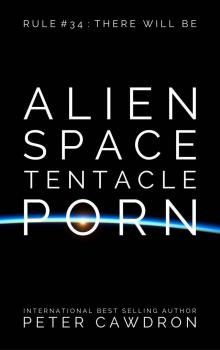 Alien Space Tentacle Porn
Alien Space Tentacle Porn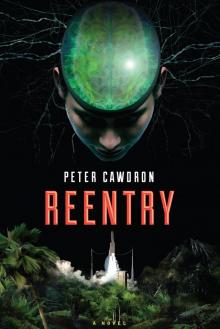 Reentry
Reentry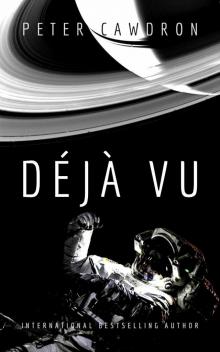 Déjà Vu (First Contact)
Déjà Vu (First Contact)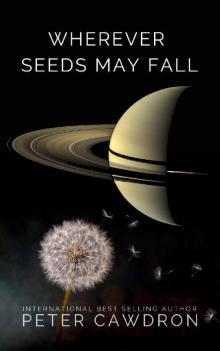 Wherever Seeds May Fall (First Contact)
Wherever Seeds May Fall (First Contact)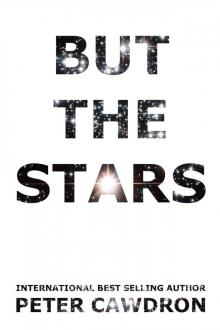 But The Stars
But The Stars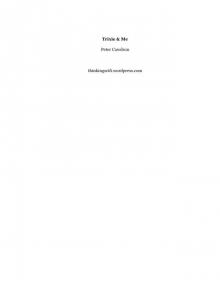 Trixie & Me
Trixie & Me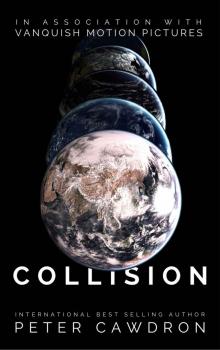 Collision
Collision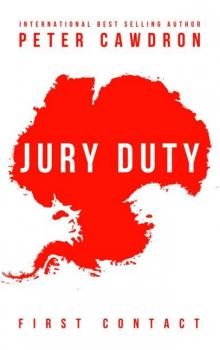 Jury Duty (First Contact)
Jury Duty (First Contact)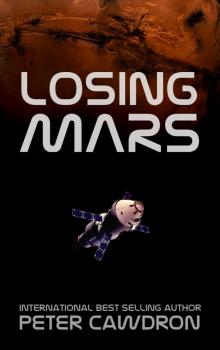 Losing Mars
Losing Mars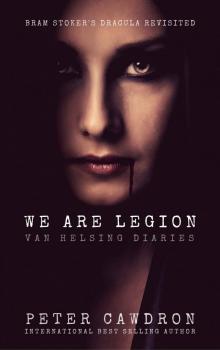 We Are Legion (van Helsing Diaries Book 2)
We Are Legion (van Helsing Diaries Book 2) Van Helsing's Diaries (Books 1-3): Nosferatu
Van Helsing's Diaries (Books 1-3): Nosferatu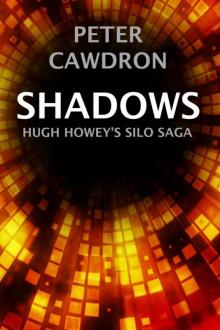 Shadows
Shadows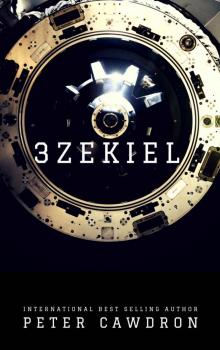 3zekiel (First Contact)
3zekiel (First Contact)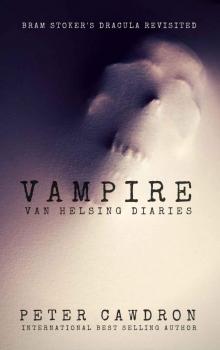 Vampire (van Helsing Diaries Book 1)
Vampire (van Helsing Diaries Book 1) Xenophobia
Xenophobia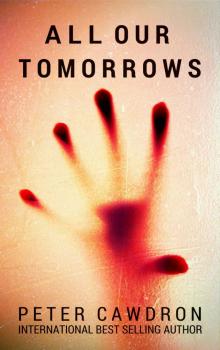 All Our Tomorrows
All Our Tomorrows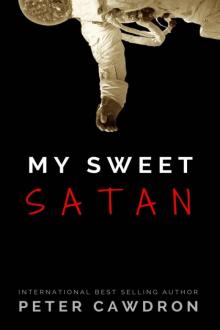 My Sweet Satan
My Sweet Satan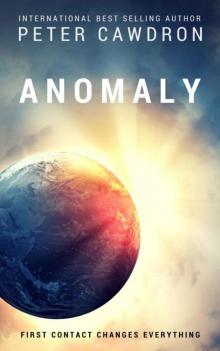 Anomaly
Anomaly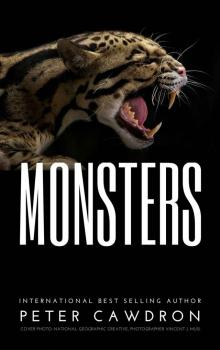 Monsters
Monsters